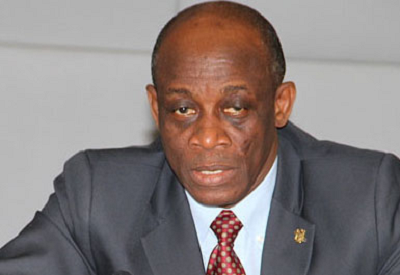
Burden-sharing eases pain
On July 5, column inches of the financial pages of the leading newspapers in the country were filled with stories about bullish Finance Minister, Seth Terkper, hailing the passage of the Ghana Deposit Protection Law, 2015.
This was a day after Parliament, satisfied with the provisions in the Ghana Deposit Protection Bill before it, decided to back its passage into law.
And why shouldn’t he be happy? On April 27, 2015, the Minister had appended his signature to the Bill presented to Parliament, with the accompanying memorandum stating, among other issues that “The object of the Bill is to establish a Deposit Protection Scheme to protect a small depositor from loss incurred by the depositor as a result of the occurrence of an insured event and to support the development of a safe, sound, efficient and stable market-based financial system in Ghana; to establish the Deposit Protection Fund which constitutes the assets of the Scheme and the Deposit Protection Corporation to manage the Scheme efficiently and effectively towards the attainment of the objects of the Scheme, amongst others”.
That it was finally passed, must have been a relief to the Minister.
In the main, this is purely an insurance programme that allows banks and depositors to share burden in the event of a serious banking crisis, or in the situation whereby a financial institution is in a state of bother, the control of which is necessary to limit any contagion effect.
In recent times, Deposit Insurance Schemes (DIS) have helped to address some of the banking crisis experienced in some parts of the world.
And there are records to prove that the resolve to introduce DIS in most countries has increased significantly because of the recent global financial crisis, which some estimate to be the worst crisis since the 1930s.
Government leaders have pledged to protect savers’ money by considering the introduction of DIS where it is not already in place, or by expanding existing schemes, especially increasing the insured limit, where the scheme is already running.
According to the International Association of Deposit Insurers (IADI), as of January 31, 2014, 113 jurisdictions had instituted some form of explicit deposit insurance, up from 12 in 1974. “Another 40 jurisdictions are studying or considering the implementation of an explicit deposit insurance system,” the IADI stated.
Yes, with Ghana’s full Parliamentary backing for the establishment of such a scheme, the country joins the league of countries that have taken up deposit insurance as part of the options to build a sound and competitive banking system.
In fact, the Bank of Ghana (BOG), as part of its functions to regulate, supervise and direct the banking and credit system and ensure the smooth operation of the financial sector has been at the forefront of the initiative to introduce DIS in the country.
Early this year, a Deputy Governor of the bank, Mr Millison Narh, touted the importance of a DIS at a press conference when speaking on issues that had consequential effect on the banking system as a whole.
So, what exactly is a DIS?
The general definition for deposit insurance is that “it is a measure implemented in many countries to protect bank depositors, in full or in part, from losses caused by a bank's inability to pay its debts when due”.
Well, the general view, in fact that is what also defines a bank, is that it should be an institution that accepts deposits and be able to pay depositors on demand. That trust, between the depositor and the bank is what promotes confidence in the financial system.
This means, when trust is eroded within a financial system, chances are that the whole economy could grind to a possible stop.
Recent experience from banking operations in Greece, Cyprus and England taught banking regulators a big lesson in how depositors’ action could all but erode economic gains.
In the examples from the three countries, when there was an “irrational demand” for cash payments from the banks due to loss of confidence, whereas instances of public sector funds were used to bailout some private banks, where DIS made it possible also, backed by some government guarantees, depositors had some payments. Therefore, deposit insurance systems are one component of a financial system safety net that ultimately promotes financial stability.
All that stated, however, it must also be pointed out that to build a sound and competitive banking system is a collective responsibility, which means that all stakeholders must contribute their quota in the most effective way. This is because in the banking ecosystem, just as it is in the larger economy, events cannot easily be controlled like a machine in the hands of a competent operator.
Economic actors are varied in their understanding and interpretation of events, and therefore, the different behaviours present a big challenge trying to understand it, let alone interpret it.
From the barber, and the petty trader, to the chief executive officer of a multinational corporation, there are actions and inactions that affect the economy in equal measure, even if the reaction is same or opposite.
It is for this reason that economic planners always treat the nation's economic vitality as supreme, encouraging, at the least opportunity, banks to provide critical services through their role in the payments system, in the intermediation of funds from savers to consumers and investors, and in the transmission of monetary policy.
That monetary policy management is a key element in maintaining confidence in the banking system and promoting financial stability, and where, as it may all seem now, DIS can play a part.
(botabil@gmail.com)

 Click the link to read your copy.
Click the link to read your copy.